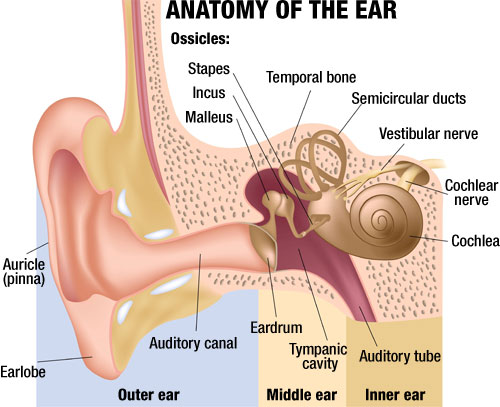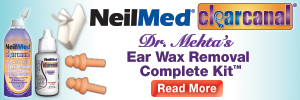Bacterial Otitis Externa (Swimmer’s Ear)
 |
Demetrio J. Aguila, III, MD, FACS Board Certified Otorhinolaryngologist Board Certified Plastic Surgeon, with a special interest in Peripheral Nerve Surgery Fellow American College of Surgeons About the author: Dr. Aguila is one of the world’s foremost peripheral nerve surgeons and an Active Member of the American Society for Peripheral Nerve. He also specializes in aesthetic and reconstructive nasal, facial, and airway procedures. Dr. Aguila completed his Otolaryngology Residency at the Mount Sinai Medical Center, and his Plastic & Reconstructive Surgery Residency at the Johns Hopkins University Medical Center, and the University of Maryland Medical Center |
Otitis externa is a disease process that affects patients of all ages. Sometimes called “Swimmer’s Ear,” it is not restricted to just water exposure. Otitis externa is Greek for inflammation of the outer part of the ear – any portion of the ear from the tympanic membrane (eardrum) outward. It can be classified into acute and chronic, as well as infectious and non-infectious.
Acute infectious otitis externa is the variety with which most people are familiar. As the name indicates, it’s acute (having started recently) and infectious (involving some type of infection). The most common bacterial culprits are staphylococcus aureus and pseudomonas aeruginosa. Often brought on by standing water in the ear canal, it can also arise from trauma, the use of cotton-tipped applicators, or other foreign bodies in the ear. In some regions, it is also associated with insect bites in the ear canal. While polymyxin-neomycin-hydrocortisone ear drops are often prescribed, I don’t recommend this course of action – use of this combination of drugs for more than a week will often treat the bacterial infection, but lead to a fungal infection which is much harder to treat. Instead, preparations such as ofloxacin, ciprofloxacin-dexamethasone, or acetic acid-hydrocortisone, are much preferred and often well-tolerated.
In general, the best course of action is prevention. Avoid the use of foreign bodies in the ears – especially “Q-Tips,” and make sure your ears are thoroughly dry before leaving the house.
If you think you or your family member might be a candidate for this procedure, see a board-certified plastic surgeon or board-certified otolaryngologist to find out more.
Website: https://www.doctoraguila.com

(1192)


Gurmeet Kaur liked this on Facebook.
I personally use NeilMed in addition to prescribing it to my patients.
Carl Farris liked this on Facebook.
Master Instructor Demetrio Aguila liked this on Facebook.
Jessica Nicole Brewer-Chaffins liked this on Facebook.